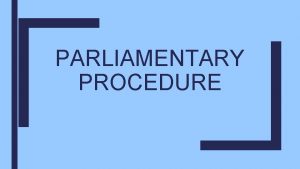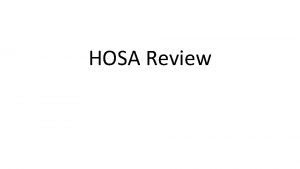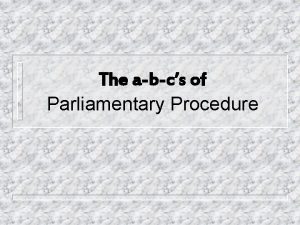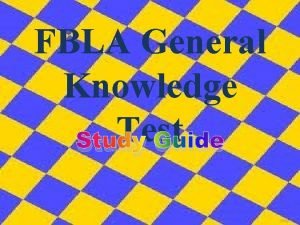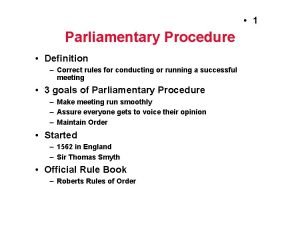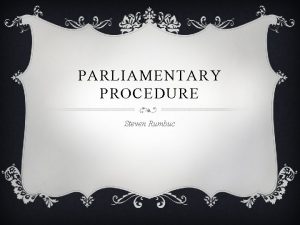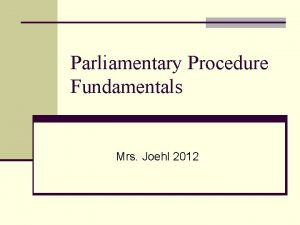PARLIAMENTARY PROCEDURE What Does HOSA Stand For Formerly








- Slides: 8

PARLIAMENTARY PROCEDURE

What Does HOSA Stand For? ■ Formerly: Health Occupations Students of America (HOSA) ■ Current: HOSA-Future Health Professionals

HOSA Colors ■ Navy Blue represents the loyalty to the health care profession ■ White represents the purity of purpose ■ Maroon represents the compassion of HOSA members

Brief History of HOSA ■ First HOSA organized: Cherry Hill, New Jersey, November 1975 ■ Only six states and 6000 members involved ■ First Health Occupations Program Specialist: Helen Powers ■ National Motto (Original): The Hands of HOSA Mold the Health of Tomorrow ■ First HOSA Headquarters: Raleigh, North Carolina ■ Third National Conference held in Asheville, North Carolina, July 812, 1980

What Does Parliamentarian Do? ■ Knowledgeable about basic parliamentary procedure ■ Gives recommendation to President on how to conduct meetings ■ Advises members about the use of parliamentary procedures ■ Conduct workshops for members on request

What is Parliamentary Procedure? ■ A set of rules to help members achieve their goals ■ “Rules” are a code of ethics that relate to the conduct of meetings ■ Founded on democratic principles ■ A form of teamwork

Basic Rules of Parliamentary Procedure ■ Used to protect rights of ALL members: right to be heard, treated fairly, treated with respect ■ Knowledge of parliamentary procedure should never be used for controlling purposes or intimidation ■ Compassion should guide our meetings, not knowledge of formal rules ■ Members must “obtain the floor, ” to do this you must be recognized before speaking

Principles ■ Every member. . . ■ Is entitled to free and full debate on issues related to the group ■ Has equal rights
